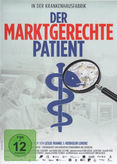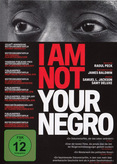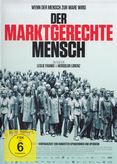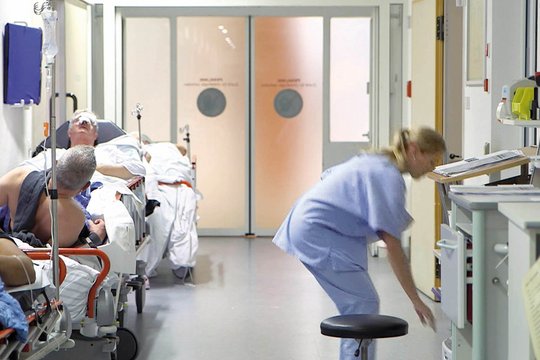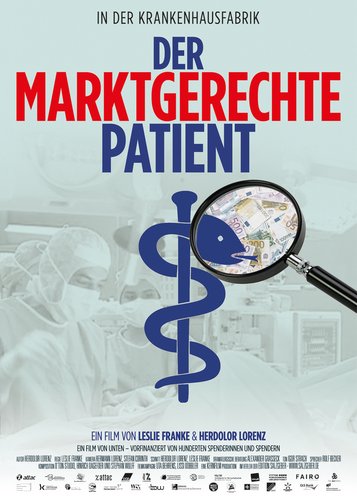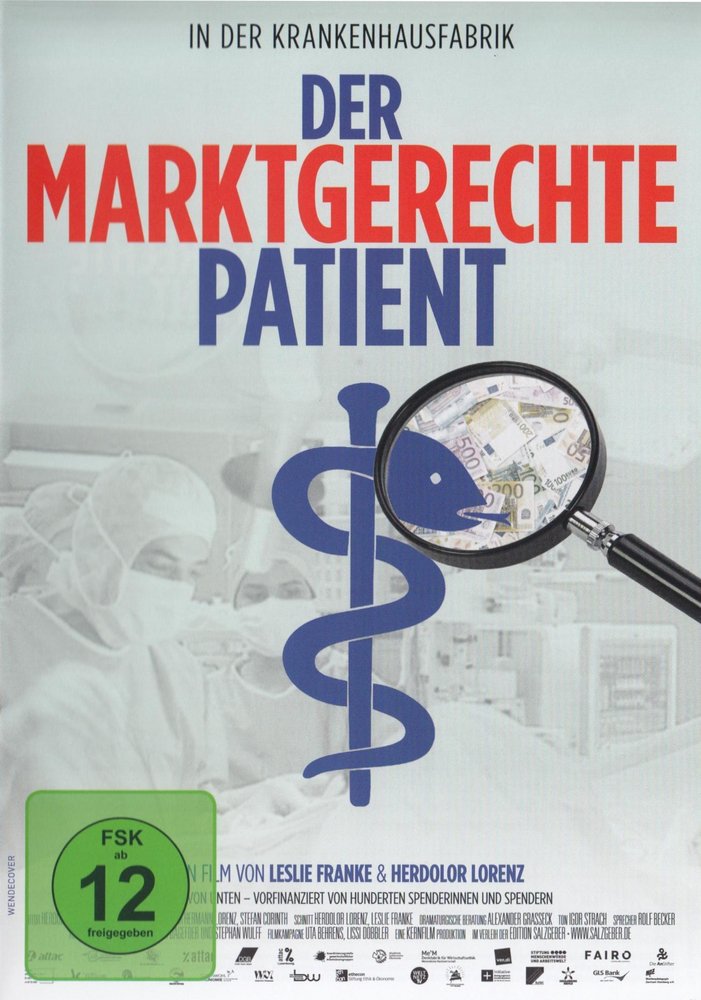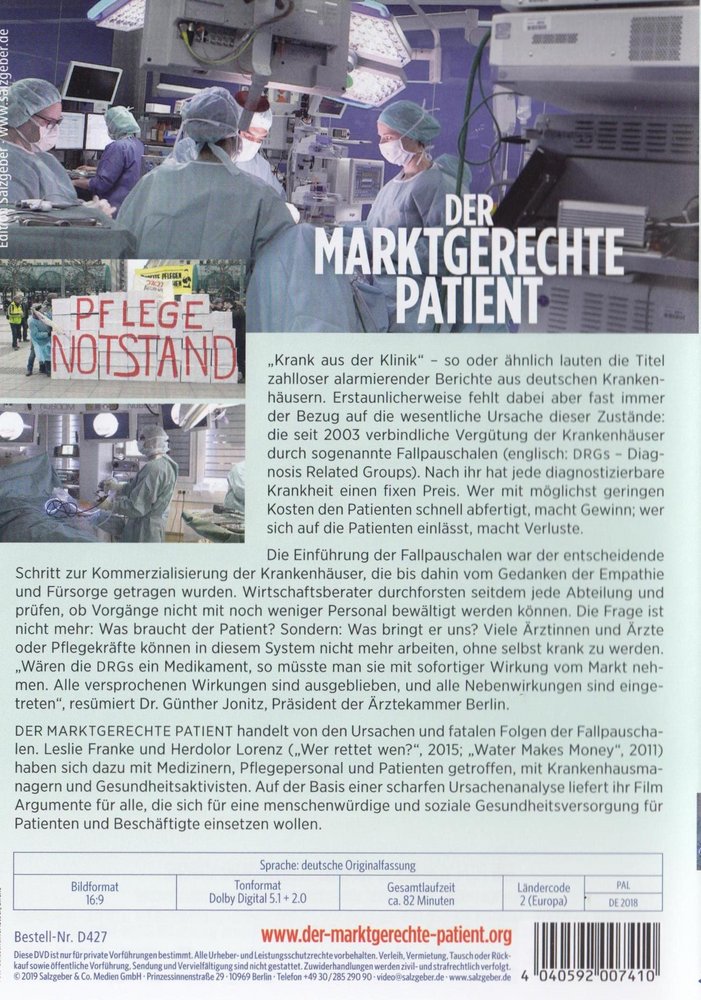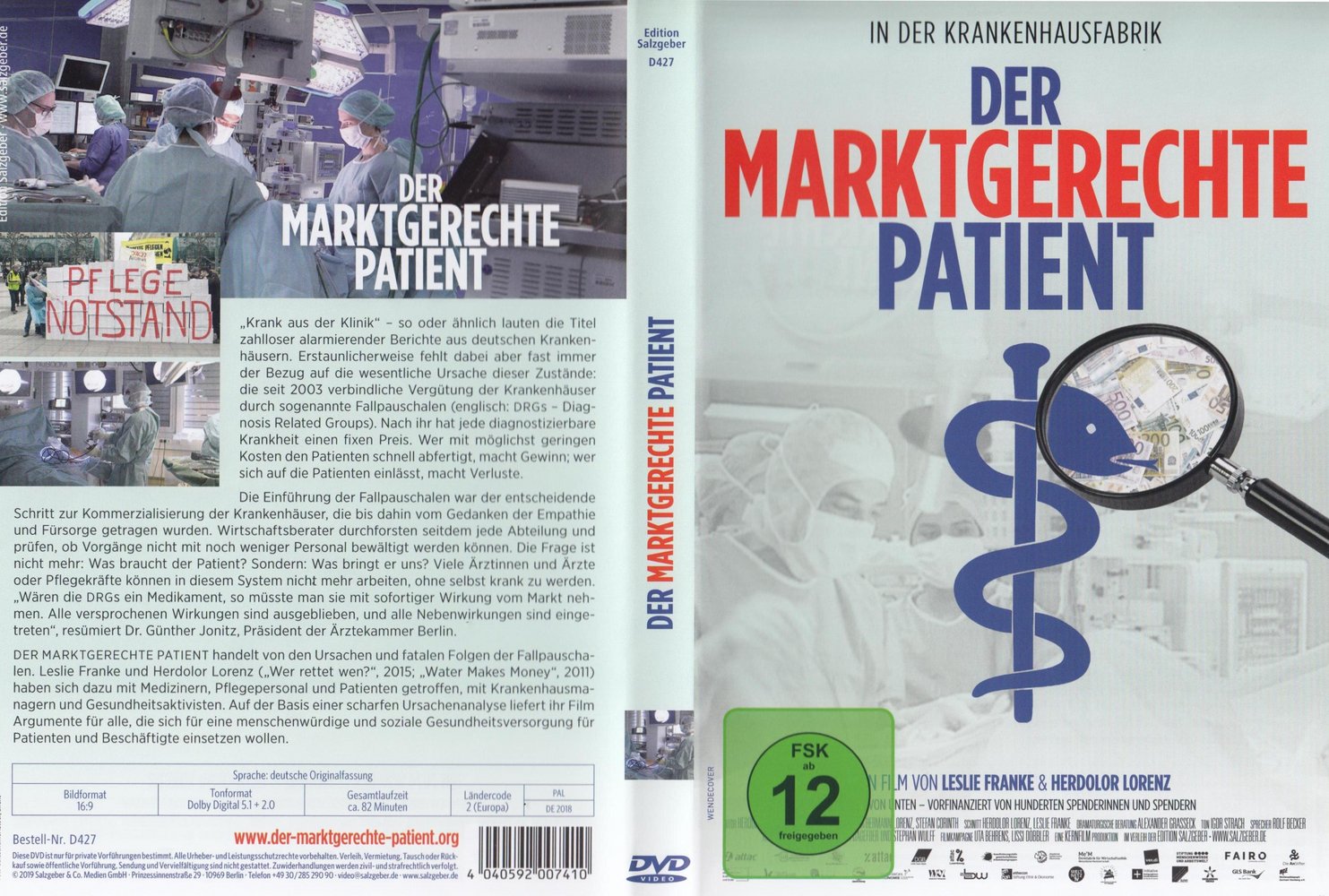'Krank aus der Klinik', so oder ähnlich lauten die Titel zahlloser alarmierender Berichte aus deutschen Krankenhäusern. Erstaunlicherweise fehlt dabei aber fast immer der Bezug auf die wesentliche Ursache dieser Zustände: die seit 2003 verbindliche Vergütung der Krankenhäuser durch sogenannte Fallpauschalen (englisch 'DRGs' für 'Diagnosis Related Groups'). Nach ihr hat jede diagnostizierbare Krankheit einen fixen Preis. Wer mit möglichst geringen Kosten den Patienten schnell abfertigt, macht Gewinn, wer sich auf die Patienten einlässt, macht Verluste. Die Einführung der Fallpauschalen war der entscheidende Schritt zur Kommerzialisierung der Krankenhäuser, die bis dahin vom Gedanken der Empathie und Fürsorge getragen wurden. Wirtschaftsberater durchforsten seitdem jede Abteilung und prüfen, ob Vorgänge nicht mit noch weniger Personal bewältigt werden können. Die Frage ist nicht mehr 'Was braucht der Patient?' sondern 'Was bringt er uns?'. Viele Ärztinnen und Pflegerinnen können in diesem System nicht mehr arbeiten, ohne selbst krank zu werden. "Wären die DRGs ein Medikament, so müsste man sie mit sofortiger Wirkung vom Markt nehmen. Alle versprochenen Wirkungen sind ausgeblieben, und alle Nebenwirkungen sind eingetreten", resümiert der Berliner Ärztekammerpräsident Dr. Günther Jonitz. Der Dokumentarfilm 'Der marktgerechte Patient' (2018) handelt von den Ursachen und fatalen Folgen dieser Fallpauschalen. Leslie Franke und Herdolor Lorenz (siehe auch 'Wer rettet wen?' 2015 oder 'What Makes Money' von 2011) haben sich dazu mit Medizinern, Pflegepersonal und Patienten getroffen, mit Krankenhausmanagern und Gesundheitsaktivisten. Auf der Basis einer scharfen Ursachenanalyse liefert ihr Film Argumente für alle, die sich für eine menschenwürdige und soziale Gesundheitsversorgung für Patienten und Beschäftigte einsetzen wollen.
Weiterlesen »
'Sick from the clinic', these or similar are the titles of countless alarming reports from German hospitals. Surprisingly, however, there is almost always no reference to the main cause of these conditions: the mandatory remuneration of hospitals in the form of so-called "Diagnosis Related Groups" (DRGs), which has been mandatory since 2003. According to her, every diagnosable disease has a fixed price. Those who process the patient quickly at the lowest possible cost make a profit, those who get involved with the patients make losses. The introduction of flat rates per case was the decisive step towards the commercialisation of hospitals, which until then had been based on the idea of empathy and care. Since then, economic consultants have been combing through every department and checking whether processes cannot be handled with even fewer staff. The question is no longer 'What does the patient need?' but 'What does he bring us?'. Many doctors and nurses can no longer work in this system without becoming ill themselves. "If the DRGs were a drug, they would have to be withdrawn from the market with immediate effect. All the promised effects have failed to materialize, and all side effects have occurred," sums up the President of the Berlin Medical Association, Dr. Günther Jonitz. The documentary 'The Marketable Patient' (2018) deals with the causes and fatal consequences of these flat rates per case. Leslie Franke and Herdolor Lorenz (see also 'Who Saves Whom?' 2015 or 'What Makes Money' from 2011) met with doctors, nursing staff and patients, with hospital managers and health activists. On the basis of a sharp analysis of the causes, her film provides arguments for all those who want to stand up for humane and social health care for patients and employees.
More »
